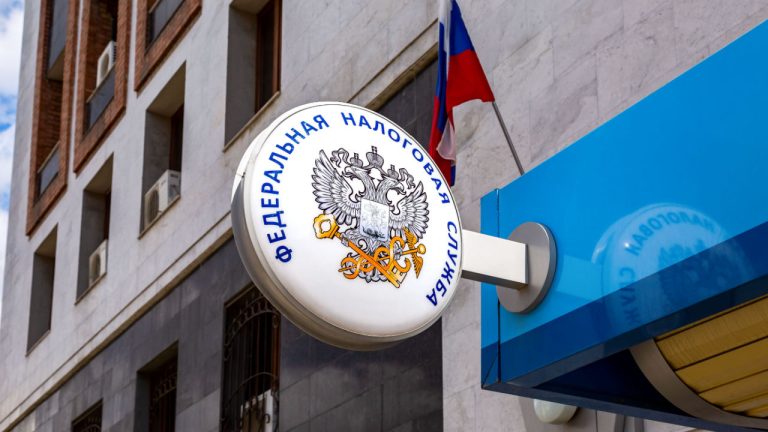
Russia’s tax administration is going to be tasked with overseeing the crypto industry in the country, a high-ranking government official has indicated. According to the regulatory concept that’s currently under consideration, the revenue service will also serve as an entry point for market participants.
Russians to Report Crypto Holdings and Transactions to Their Tax Service
The Federal Tax Service of Russia (FTS) will likely be the nation’s leading regulator for the cryptocurrency sector and admit participants to the market, Deputy Finance Minister Alexey Moiseev has said in interview with the daily Izvestia.
Russian lawmakers are preparing to adopt a package of laws on crypto assets during the spring parliamentary session. According to the draft legislation designed to introduce rules for the industry, the Russian government is expected to appoint a state body that will regulate it.
The matter is still under discussion, Moiseev remarked. “In the concept that we have developed, the supervisory agency will accept declarations from people about their wallets and transactions. Now, the FTS does this for everyone’s foreign accounts. It is logical to assume that it should also deal with [crypto] regulation,” the official elaborated.
Both legal entities and private individuals in Russia will be able to mine cryptocurrency, sell it on foreign markets, or hold it, the deputy finance minister also noted, pointing out that all these transactions must be reported and taxes paid on the income. Information about the wallets and transactions will be shared with three institutions, he added.
“Firstly, this is the Federal Tax Service, which, apparently, will be a window for citizens’ declarations. It is now doing the same for foreign [bank] accounts, and a cryptocurrency wallet is no different in this sense,” Moiseev explained, during the St. Petersburg International Legal Forum.
The other two organizations that will receive the data will be Russia’s financial watchdog, Rosfinmonitoring, and the Central Bank of Russia. “But the interface for everyone, except banks, will be the Federal Tax Service,” the finance ministry official emphasized.
With wave after wave of Western sanctions and financial restrictions over the invasion of Ukraine, Russia has been stepping up efforts to legalize at least some crypto-related activities such as mining and the use of cryptocurrencies for international settlements.
Four laws are currently under review in the State Duma, the lower house of Russian parliament. Last week, the head of the Financial Market Committee, Anatoly Aksakov, said that the plan is to adopt them by the end of July.
Do you think the Russian parliament will approve the government’s proposal to task the tax service with crypto regulation? Tell us in the comments section below.
from Bitcoin News https://ift.tt/H3e7lUf
Comments
Post a Comment